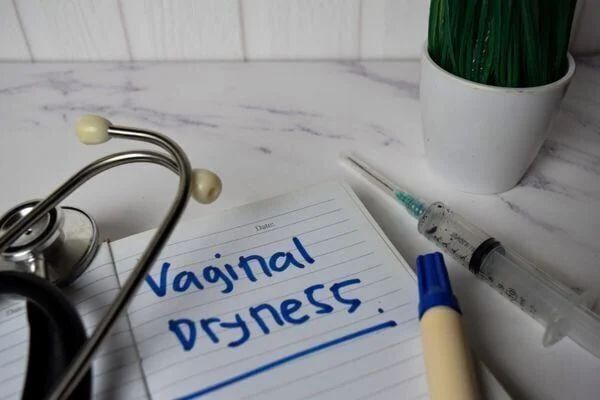What causes vaginal dryness?
Chronic vaginal dryness, which results from less-than-normal lubrication in your vagina, is usually caused by changes in your estrogen level. Your production of estrogen may drop while you're breastfeeding, for example; some women experience vaginal dryness all the time they're lactating, but the problem disappears once breastfeeding stops. Just before menopause, your estrogen level begins to decline, which can lead to vaginal dryness as well.
Chronic vaginal dryness is different from the occasional dryness you may feel if you aren't relaxed during sex or have intercourse before you've had enough time to become aroused. In such a case, you may not produce the lubrication that normally accompanies sexual arousal, and intercourse may feel uncomfortable.
Other conditions can cause episodes of vaginal dryness as well. Spermicides rarely create a problem, but using them several times in the same day may make your vagina feel a bit dry; using diaphragms may also lead to dryness because they can block the downward flow of the vaginal secretions from the cervix and upper vagina. Douching can result in vaginal dryness, and yeast and other common infections may irritate your vagina and cause a feeling of dryness, even though the vagina is actually well lubricated. Women who have had their ovaries surgically removed or have undergone pelvic irradiation for cancer may also experience vaginal dryness, which usually goes away on its own.
What are my treatment options?
If you're breastfeeding, an over-the-counter lubricant can work wonders in alleviating vaginal dryness, particularly during sex. When you stop breastfeeding, your hormonal levels will return to their normal state and your vagina will no longer feel dry.
For vaginal dryness that causes you difficulties during sex, an over-the-counter lubricant such as K-Y Jelly or Astroglide may be a short-term solution. If the problem is that you routinely feel rushed into sex before you're ready for it, it would also be good to let your partner know that you need to spend more time on foreplay before having intercourse. Women and men are typically different in their approach to sex: Men tend to get aroused more quickly than women do. So suggest that he slow down -- say, that you spend about half an hour caressing and relaxing with each other before intercourse -- and see what happens.
Stay clear of Vaseline and other products containing petroleum if you use a diaphragm or condom and want to avoid pregnancy. These lubricants can cause the latex in your contraceptive device to deteriorate (and let sperm into the uterus). There's a wide choice of products, including K-Y Jelly and Astroglide, that contain no petroleum.
